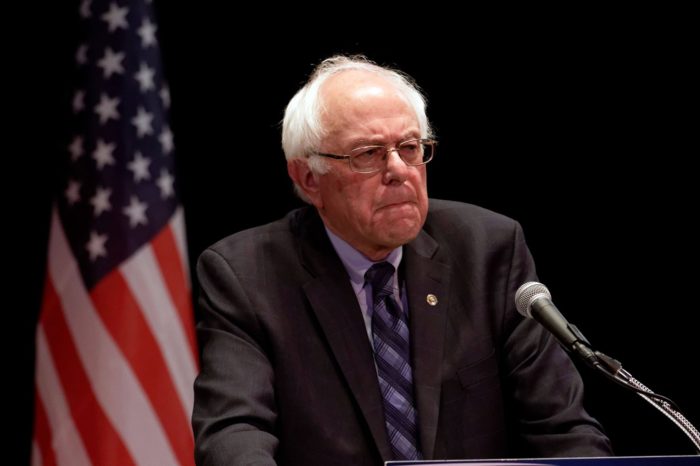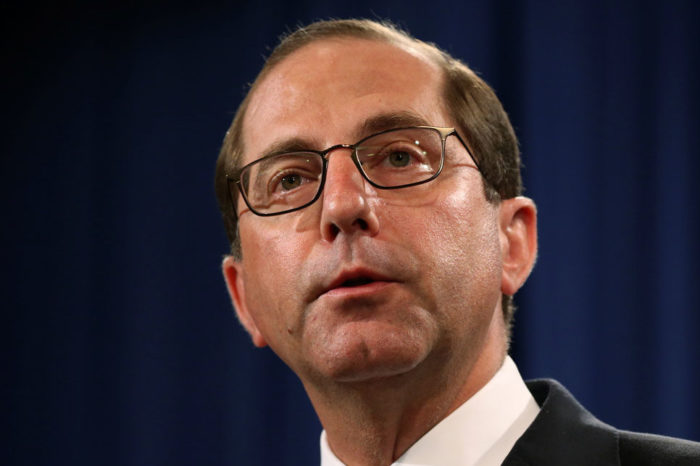How Orwellian has the Democrat Party become? Let’s count the ways…
In September 2017 Proud Boy Magazine (PBM) published an article by PawL BaZiLe titled “10 Ways Orwell’s 1984 is a Progressive Utopia.” BaZiLe provided ten “quotes and commentary on the left’s relationship with Orwell’s world from 1984.”
As Steven Crowder points out in his political formulas:
Any Word + Socialism = Socialism and Socialism + Anything = A bad idea that’s never worked.
PBM noted in 2017:
If you haven’t read George Orwell’s master piece 1984, run, do not walk, to itunes, or a book store or Amazon and get busy. The book was written in 1948 so the British author was able to personally live through the age of ideas that brought us such monsters as Hitler and Stalin. The book itself is so perfect, it has become a clique for a dystopian future controlled by an all seeing authoritarian regime in a world with no freedom. Upon my recent reading of it, I couldn’t help but notice how eerily similar the world in the book was to the post modernist left’s wish list for the world.
Fox News reported on the Democratic Socialists of America:
The Democratic Socialists of America [DSA] got its start as a culmination of two groups – the Democratic Socialist Organizing Committee (DSOC) and the New American Movement (NAM) – according to Temple University professor Joseph M. Schwartz, who detailed the organization’s history online.
As DSA’s membership grew from its official founding in 1982, it had a hand in “building a strong coalition among progressive trade unionists, civil rights and feminist activists and the ‘new politics’ left-liberals” at the time, led by late chairman Michael Harrington.
Let’s give some recent examples of just how Orwellian the Democrat Party has become using a few the ten quotes from 1984.
Quote 1 – “Who controls the past controls the future who controls the present controls the past.”
Groups tearing down Confederate statues in the name of stopping racism and hate. Hollywood in its film “First Man” leaving out the scene where the American flag is planted on the moon. New York Governor Andrew Cuomo stating that “America was never great.” Not teaching the U.S. Constitution in public schools. Teaching social justice in U.S. colleges and universities rather than equal treatment under the law.
Quote 2 – “The centuries of capitalism were held to have produced nothing of value.”
Today’s core of the left is a hatred is capitalism. Democratic Socials candidates in the 2018 midterm elections such as Andrew Gillum in Florida and Alexandria Ocasio-Cortez from New York portend a rise of anti-capitalists nationwide.
PBM notes, “The Occupy movement was hugely anti-capitalist and led by people who look like they couldn’t manage their deodorant budget let alone everyone else’s money. If you live in a big city today, or just have a art school student you needed to sit with at Thanksgiving you’re sure to get the evil eye and a lecture if you openly declare you’re a capitalist. If they could push a button a destroy the free market today, the left would. The choices these economic “hobbyists” seem to have to replace the open market is nothing or full blown socialism. This was the message that got a candidate like Bernie Sander so much steam in the 2016 primary.”
Both Gillum and Ocasio-Cortez were endorsed by self-proclaimed Democrat Socialist Bernie Sanders.
Quote 3 – “It had long been realized that the only secure basis for oligarchy is collectivism.”
Ayn Rand in her monograph “Textbook of Americanism” wrote:
What Is the Basic Issue in the World Today?
The basic issue in the world today is between two principles: Individualism and Collectivism. Individualism holds that man has inalienable rights which cannot be taken away from him by any other man, nor by any number, group or collective of other men. Therefore, each man exists by his own right and for his own sake, not for the sake of the group.
Collectivism holds that man has no rights; that his work, his body and his personality belong to the group; that the group can do with him as it pleases, in any manner it pleases, for the sake of whatever it decides to be its own welfare. Therefore, each man exists only by the permission of the group and for the sake of the group.
These two principles are the roots of two opposite social systems. The basic issue of the world today is between these two systems.
These two systems are now represented by collectivist, one world order Democrat Socialists and individualist Republicans.
 Quote 4 – “A word contains its opposite in itself.”
Quote 4 – “A word contains its opposite in itself.”
Examples of “words that are opposite” used by politicians, the media and those in the Democrat Socialist Party include:
- If you are pro-American or voted for President Donald J. Trump you are a Nazi.
- If you are concerned about the rise of Islamic extremism you are Islamophobic or a racist.
- If you believe that marriage is between one man and one woman you are homophobic.
- If you believe in God then you are part of the alt-right.
- If you believe in the U.S. Constitution as written then you are not democratic.
Please take the time to read and watch the embedded videos in the Proud Boy Magazine (PBM) “10 Ways Orwell’s 1984 is a Progressive Utopia.”
George Orwell wrote that in the Utopian society of 1984:
War is peace. Freedom is slavery. Ignorance is strength.
All animals are equal, but some animals are more equal than others.
Who controls the past controls the future. Who controls the present controls the past.
If you want a vision of the future, imagine a boot stamping on a human face – forever.
Big Brother is watching you.
If liberty means anything at all, it means the right to tell people what they do not want to hear.
Political language. . . is designed to make lies sound truthful and murder respectable, and to give an appearance of solidity to pure wind.
One does not establish a dictatorship in order to safeguard a revolution; one makes the revolution in order to establish a dictatorship.
Every generation imagines itself to be more intelligent than the one that went before it, and wiser than the one that comes after it.
It was a bright cold day in April, and the clocks were striking thirteen.
Any of these sound familiar?
EDITORS NOTE: The featured image is a 1984 Movie Still, CosmicCatacombs.com.


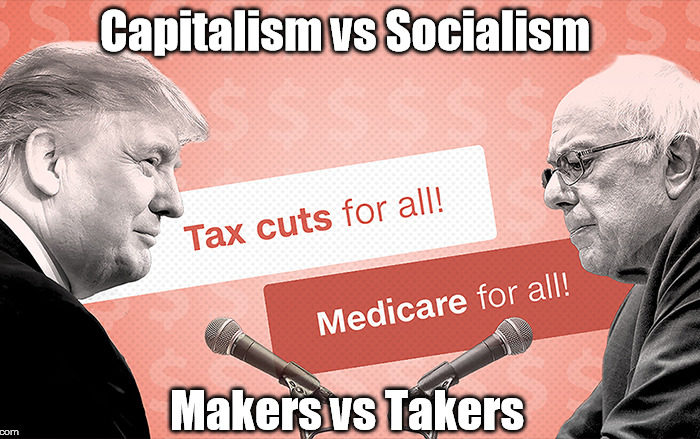

 We’re experiencing the rise of a new kind of socialist. The original definition of socialism—state ownership of the means of production—is beginning to fall by the wayside.
We’re experiencing the rise of a new kind of socialist. The original definition of socialism—state ownership of the means of production—is beginning to fall by the wayside.
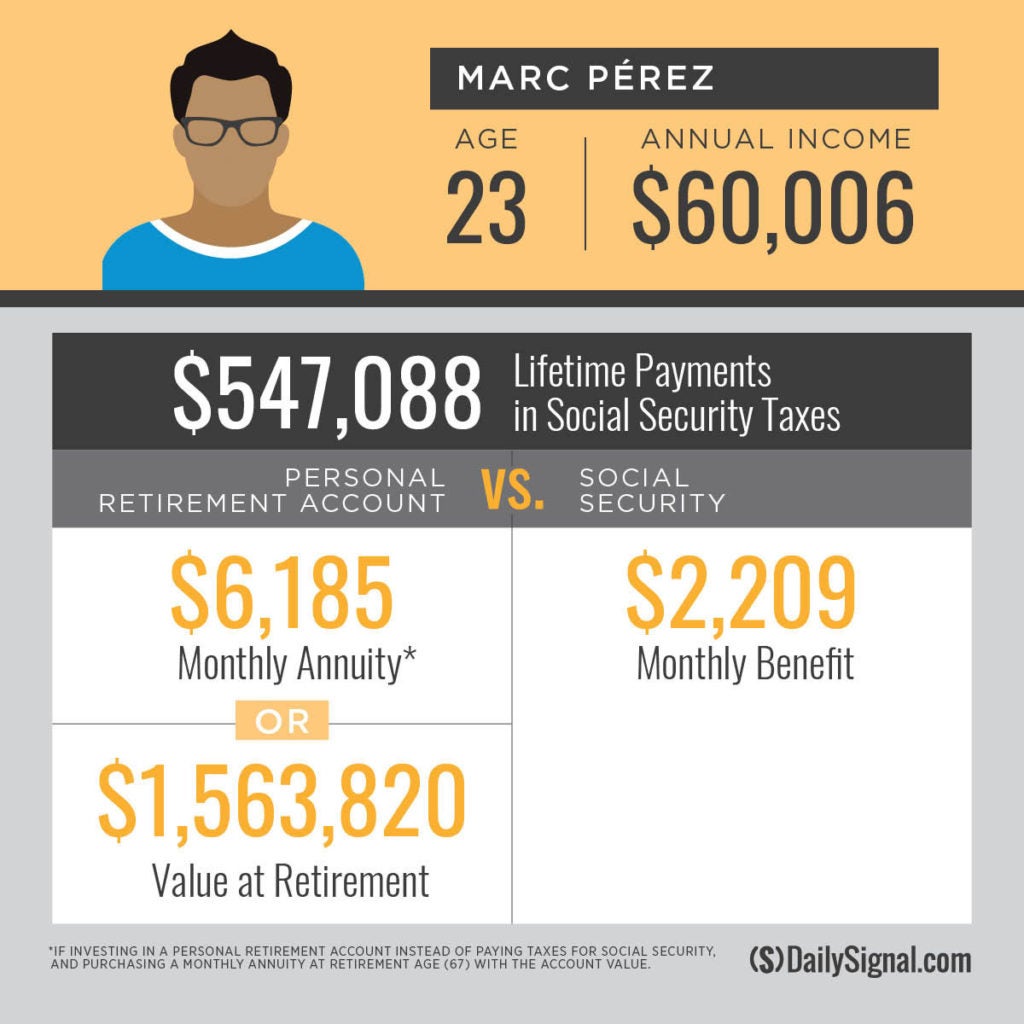
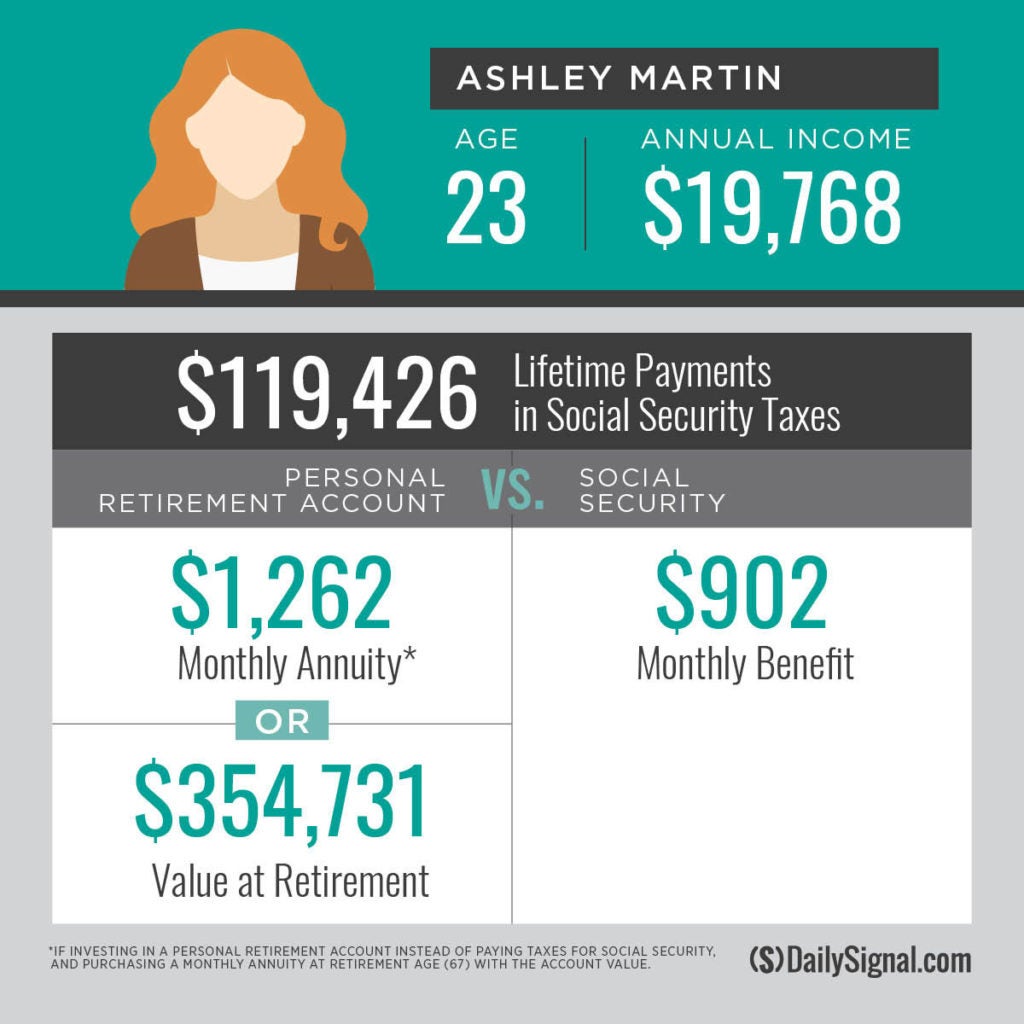
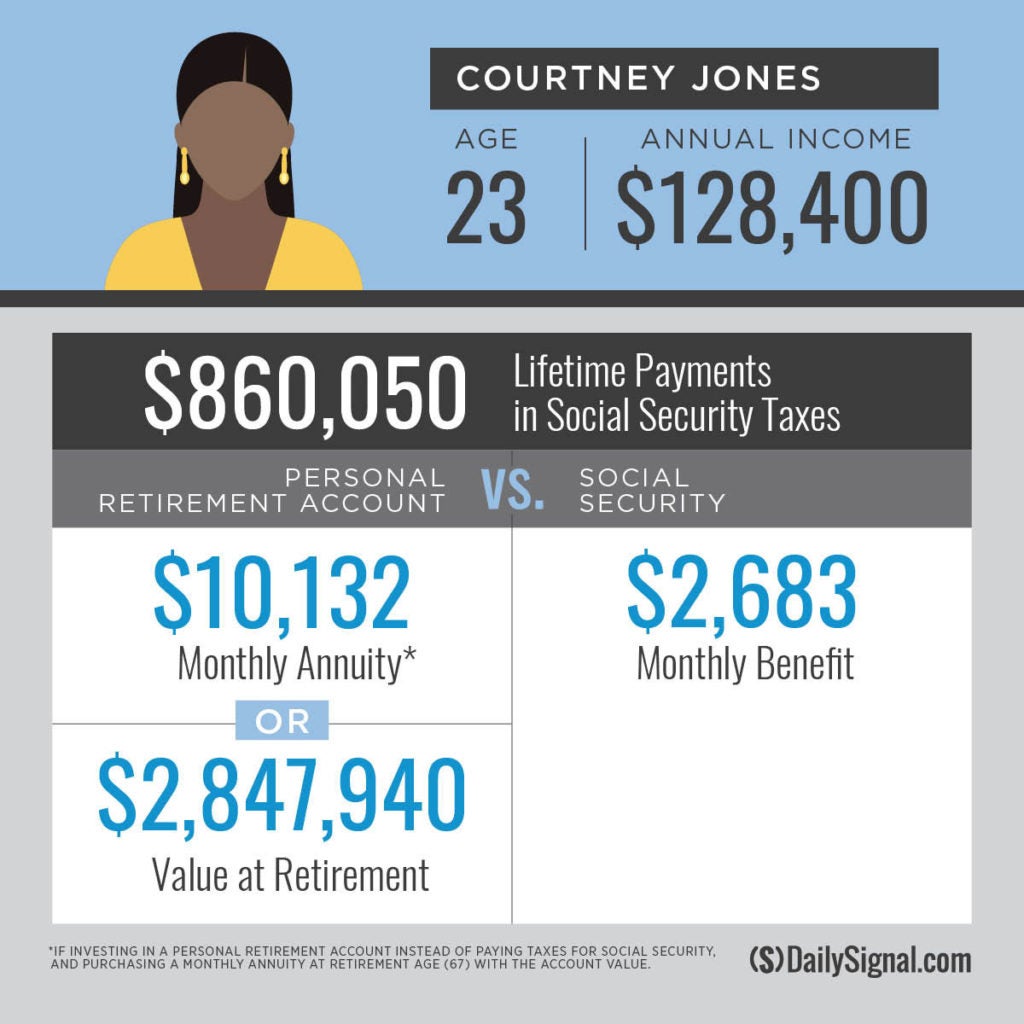






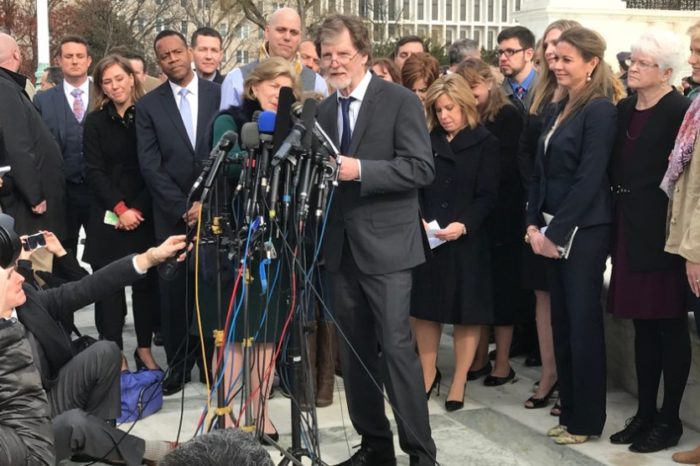

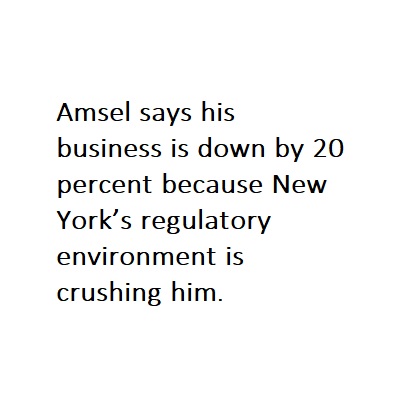 Since then, Amsel has been selling unbranded plastic and paper bags to a variety of shop owners, and he spent decades building his client base. Certainly not a “get-rich-quick” scheme, it required driving the city from one shop to another, finding the right products, and building relationships with shop owners. As the business grew, Amsel began shipping with UPS, hiring workers, and he bought a warehouse to store his products. He had something he hoped to pass on to his three children and eight grandchildren, but now he’s worried that part of that dream may never materialize.
Since then, Amsel has been selling unbranded plastic and paper bags to a variety of shop owners, and he spent decades building his client base. Certainly not a “get-rich-quick” scheme, it required driving the city from one shop to another, finding the right products, and building relationships with shop owners. As the business grew, Amsel began shipping with UPS, hiring workers, and he bought a warehouse to store his products. He had something he hoped to pass on to his three children and eight grandchildren, but now he’s worried that part of that dream may never materialize.
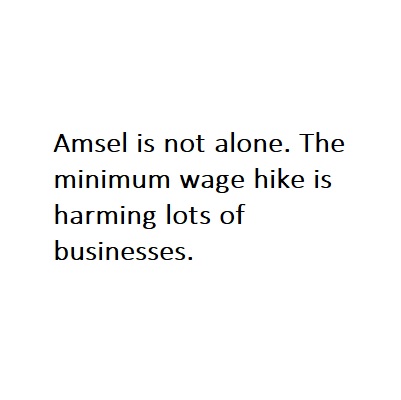 That’s what Amsel had to do—eliminate four jobs to bring his total employees below 10. So while some of his employees may have gotten a “raise,” four were left without jobs. And he had to drastically cut the hours and eliminate some paid holidays for his remaining employees. And once December 2019 arrives, he may have to consider reducing hours or eliminating more employees.
That’s what Amsel had to do—eliminate four jobs to bring his total employees below 10. So while some of his employees may have gotten a “raise,” four were left without jobs. And he had to drastically cut the hours and eliminate some paid holidays for his remaining employees. And once December 2019 arrives, he may have to consider reducing hours or eliminating more employees.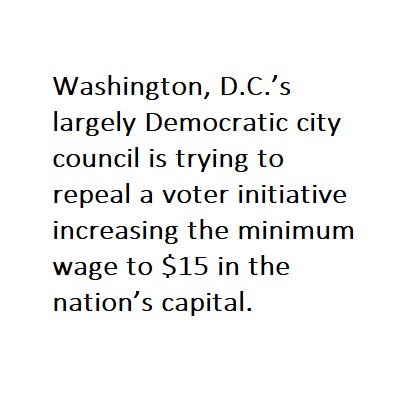 It’s no wonder people are
It’s no wonder people are 






